What is Afrofuturism?
Think literature, art, and film with a strong drive toward social justice and Black liberation through the lens of Science Fiction, Fantasy, and/or Magical Realism (all different sub-genres of Speculative Fiction). If you’re curious to learn more about any of those literary trends in particular, stay tuned for a future blog series coming this Spring. Your friendly Adult Services Librarian is currently developing a long-term plan for this new blog series.
Afrofuturist literature is highly innovative, politically-charged, and takes all the elements of the fantastical that could be dismissed as mere escapist “fantasies” to a much more grounded level. (Not that I have anything against fantasy that lacks a political charge or a commitment to social justice for marginalized communities. Escapism is totally valid. We live in a chaotic world from which we often want nothing more than to escape, even if the escape is only temporary and in our collective imaginations). Pardon my rant… 🙂
To be 100% transparent, I am not an expert on Afrofuturism, so see below definitions of the movement (and a brief history thereof) from the voices of African-American scholars, writers, and artists themselves:
- “Afrofuturism was originally coined in scholarly circles to explore how Black writers and artists have utilized themes of technology, science fiction, fantasy and heroism to envision stories and futures of Black liberation and convey a more genuine and empowered image of the Black experience.” (From this Smithsonian article, an online interview with curator, Dr. Kevin Strait).
- “The term ‘afrofuturism’ was coined by Mark Dery in his 1993 essay, ‘Black to the Future’ In the piece, the term is defined as ‘speculative fiction that treats African American themes and addresses African American concerns in the context of the twentieth century technoculture—and, more generally, African American signification that appropriates images of technology and a prosthetically enhanced future’” (this is excerpted from a Library Guide from the Pratt Institute, inspired by “BLM Pratt’s 2021 Teach In: Black Futures & Utopias”).
For a more cinematic approach, check out this PBS mini-documentary from 2021 all about Afrofuturism as a movement, not limited to its literary elements.
Where to start with Afrofuturism?
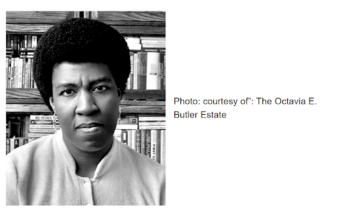 One of the literary giants of this contemporary movement was the prolific Octavia Butler (1947-2006). Her literature is highly acclaimed, but wasn’t always well received during her lifetime, especially due to the strong intersectional feminist tone of her writing. According to her website, “Though the MacArthur Grant made life easier in later years, she struggled for decades when her dystopian novels exploring themes of Black injustice, global warming, women’s rights and political disparity were, to say the least, not in commercial demand.” Regardless of their degree of commercial success, her books are definitely worth a read, especially if you’re interested in learning more about Afrofuturism.
One of the literary giants of this contemporary movement was the prolific Octavia Butler (1947-2006). Her literature is highly acclaimed, but wasn’t always well received during her lifetime, especially due to the strong intersectional feminist tone of her writing. According to her website, “Though the MacArthur Grant made life easier in later years, she struggled for decades when her dystopian novels exploring themes of Black injustice, global warming, women’s rights and political disparity were, to say the least, not in commercial demand.” Regardless of their degree of commercial success, her books are definitely worth a read, especially if you’re interested in learning more about Afrofuturism.
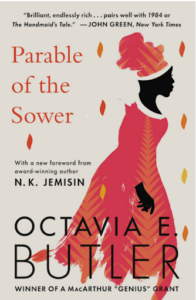 One of her earlier – though not the first – novels (actually the first in a duology), The Parable of the Sower (1993), has been described as a novel that “pairs well with 1984 or The Handmaid’s Tale” (John Green, New York Times)” (quote once again excerpted from her website). Think of the dystopian world painted by another literary giant, Margaret Atwood, but with a focus on race as well as gender and class.
One of her earlier – though not the first – novels (actually the first in a duology), The Parable of the Sower (1993), has been described as a novel that “pairs well with 1984 or The Handmaid’s Tale” (John Green, New York Times)” (quote once again excerpted from her website). Think of the dystopian world painted by another literary giant, Margaret Atwood, but with a focus on race as well as gender and class.
You could dedicate yourself to reading her entire output alone and you’d already have a fantastic window into the world of Afrofuturism. However, if you’d like to dig even deeper, check out the following book recommendations!
More Afrofuturist Book Recommendations: 5 More Fantastic Afrofuturist Reads
| Title (Pub. Year) | Author | Call No./# of Minerva Copies | What’s it about? |
| Dark Matter: A Century of Speculative Fiction from the African Diaspora (2000) | Thomas, Sheree R. (editor) | 2 Minerva copies | A fantastic overview of the genre: an anthology that will introduce you to numerous fantastic contributors to the Afrofuturist literary movement over the past century. |
| The Fifth Season (Bk. 1) (2015) | Jemisin, N.K. | 24 Minerva copies | Apocalyptic fiction; picture mothers and daughters at the end of the world amidst violence (set against the backdrop of a crumbling empire). |
| The Memory Librarian: And Other Stories of Dirty Computer (2022) | Monáe, Janelle (with various collaborators, including Sheree R. Thomas) | 22 Minerva copies | Debut novel by world-renowned American singer-songwriter, rapper, and actress (now writer). Picture AI takeovers – AI controls the fate of humanity – and totalitarian governments. (Check out the audiobook version narrated by the author herself). |
| The Underground Railroad (2016) | Whitehead, Colson | WHI | What if the “Underground Railroad” actually existed (as a functioning train system)? Dive into this imaginative alternative history (re)telling set during the American Civil War, through the voice of an escaped slave. |
| An Unkindness of Ghosts (2017) | Solomon, Rivers | SOL | A sort of space opera version of U.S. history, specifically its horrific past rooted in slavery and brutal racist violence. Envision government resistance and interplanetary voyages…Black liberation taken from a literally cosmic perspective. |
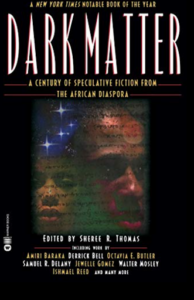
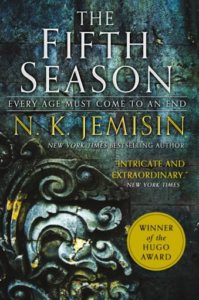
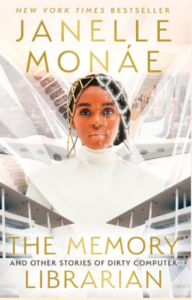
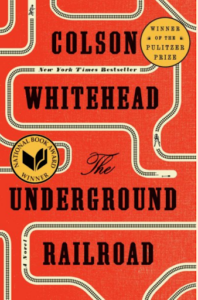
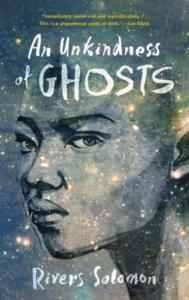
An Afrofuturist Postlude & A Librarian’s Plug for the Maine Humanities’ Council’s Annual Readers’ Retreat!
The Maine Humanities Council (MEH) hosts an annual one-day Readers’ Retreat in May (or April). The 2023 Readers’ Retreat was dedicated to the work of Rivers Solomon and their book, An Unkindness of Ghosts (see above). Solomon was at the program and gave a lecture/book talk to all attendees. Their book talk is available for viewing on Youtube.
While this year’s selected title is not within the realm of Afrofuturism, the program is coming up – and a bit earlier than usual, on April 6, 2024. This year’s program will be held in person in Orono, but will also be available online. Registration opens THIS MONTH, so stay tuned for more details and an opportunity to participate in this exciting program.
Courtney Kleftis
Adult Services Librarian
(ckleftis@yarmouthlibrary.org)
